Key takeaways:
- Procrastination negatively impacts emotional well-being and personal growth, often leading to stress and guilt.
- Productivity apps can help manage tasks, track time, and minimize distractions, serving as valuable tools in overcoming procrastination.
- Personalization and integration into daily routines enhance the effectiveness of productivity apps.
- Experimentation with different apps is crucial, as finding the right fit can significantly improve productivity and motivation.
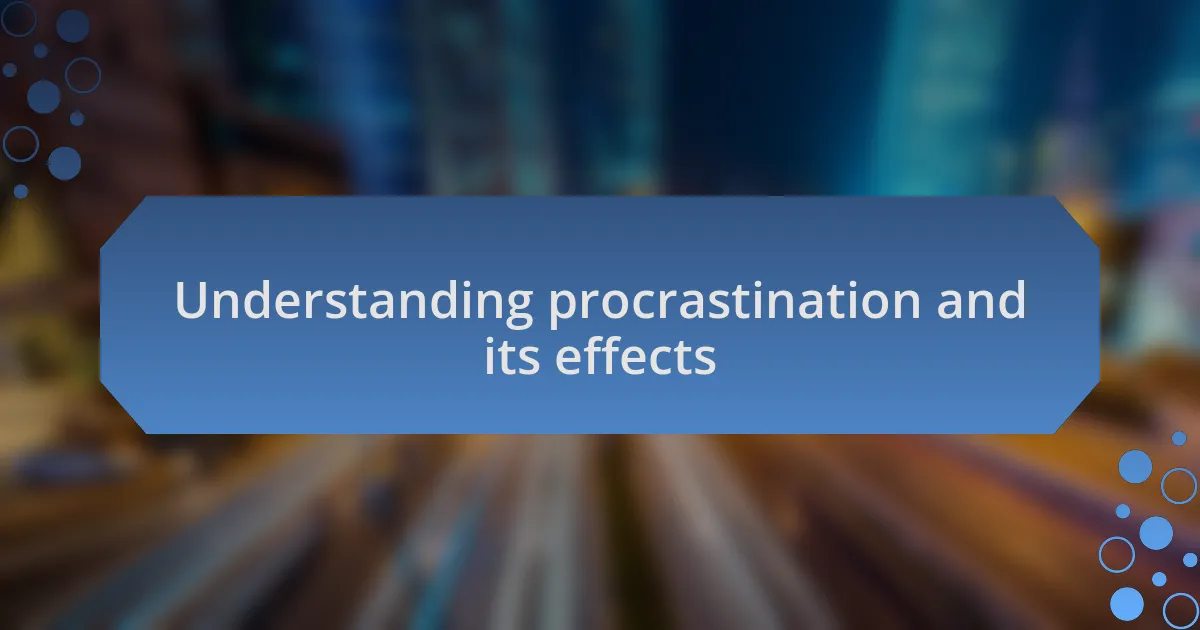
Understanding procrastination and its effects
Procrastination can feel like a heavy weight on our shoulders, pulling us away from our goals. I remember staring at a blank screen, stuck in the cycle of scrolling through social media instead of writing that important article. It’s frustrating when the clock ticks away and the looming deadlines grow closer—ever feel that way?
The emotional toll of procrastination can be profound. I’ve experienced that sinking feeling of stress and guilt when I realize I’ve wasted precious hours. It’s as if the to-do list becomes a source of anxiety rather than a tool for productivity, don’t you think?
Understanding procrastination isn’t just about recognizing these feelings; it’s about acknowledging its impact on our lives. It can hinder our personal growth and sabotage our potential, making us question our abilities. Reflecting on my own experiences, I often wonder—how many opportunities have slipped away simply because I delayed action?
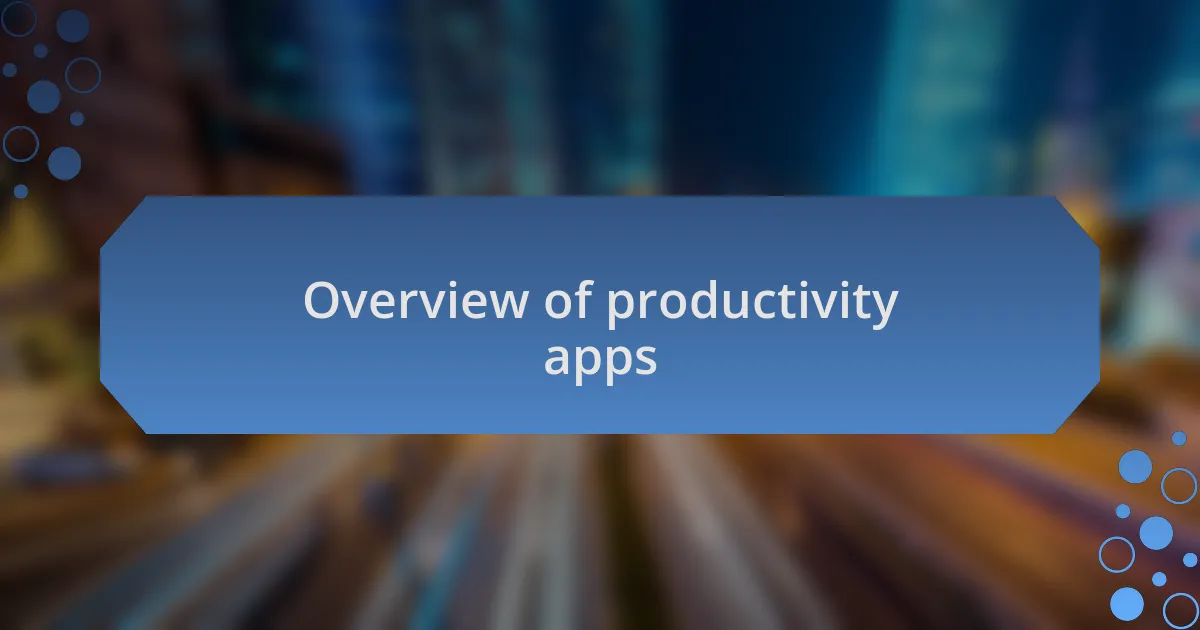
Overview of productivity apps
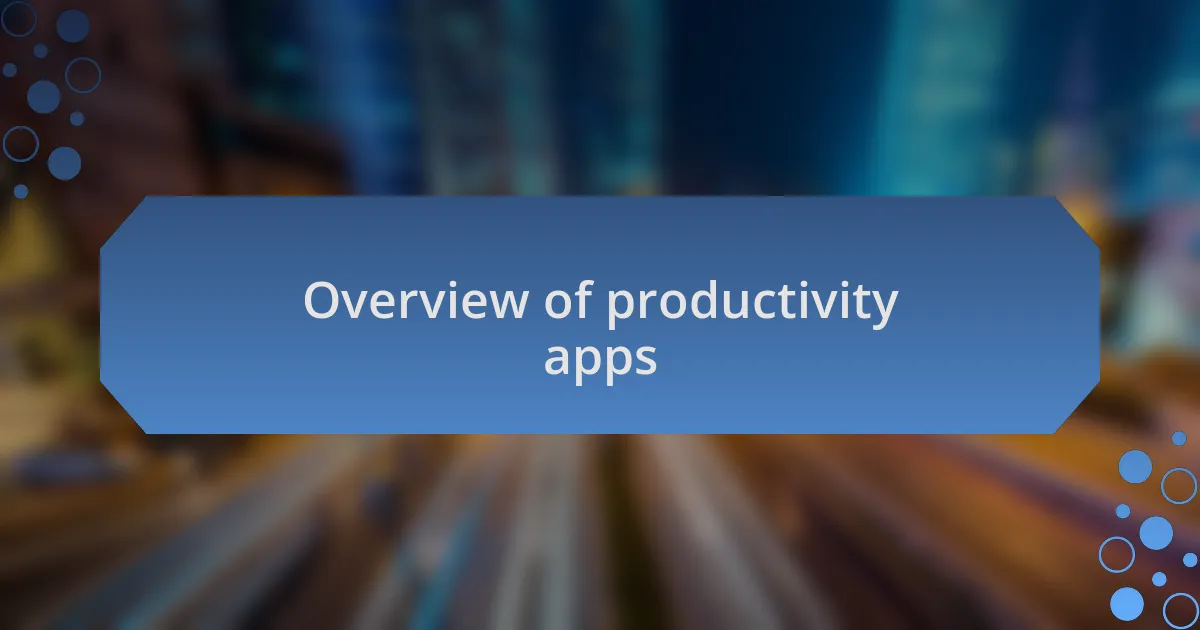
Overview of productivity apps
When I first started exploring productivity apps, I was amazed by how diverse they are. Some focus on task management, while others help with time tracking or minimizing distractions. The real challenge lies in finding the right fit for my workflow—have you ever faced that dilemma?
I remember trying several applications before settling on a few that genuinely transformed my approach to managing tasks. For instance, using a simple to-do list app changed my game; it allowed me to visualize my day and prioritize effectively. Plus, the satisfaction of checking off completed tasks never gets old—wouldn’t you agree?
Ultimately, productivity apps are like digital companions tailored to guide us through our daily challenges. They can streamline our routines and help us stay accountable. I often think of them as personalized tools that not only help us conquer procrastination but also provide a sense of accomplishment and relief in our busy lives.
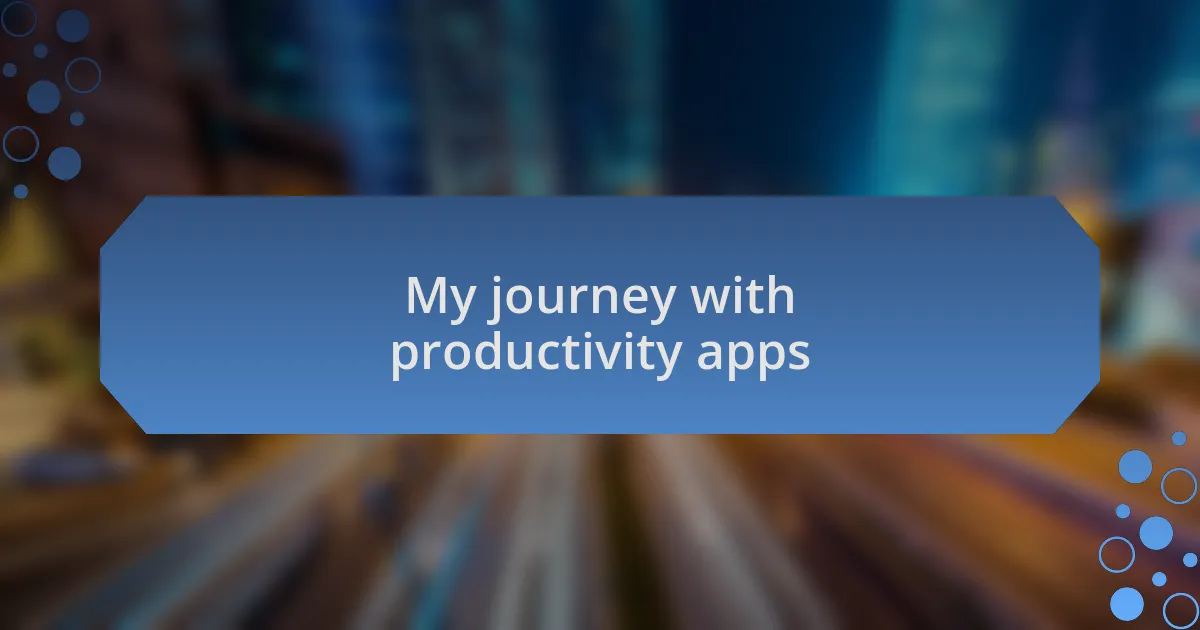
My journey with productivity apps
My journey with productivity apps started as a bit of an experiment. I still recall the excitement of downloading various apps, from sleek interfaces to bold promises of efficiency. Each new tool felt like a breath of fresh air, making me wonder—could this be the one that finally tames my procrastination?
One standout experience was with a time-blocking app that I stumbled upon during a particularly chaotic week. Setting specific time slots for tasks didn’t just organize my day; it instilled a sense of discipline I didn’t know I needed. Have you ever tried blocking out your time? It’s remarkable how a simple structure can shift your mindset from chaotic to focused.
As I navigated through these apps, I began to understand that the right app is more than just a tool—it’s a catalyst for change. I still remember the palpable relief of finishing my tasks ahead of schedule and feeling empowered instead of overwhelmed. It made me realize that overcoming procrastination is as much about mindset as it is about the applications we choose.
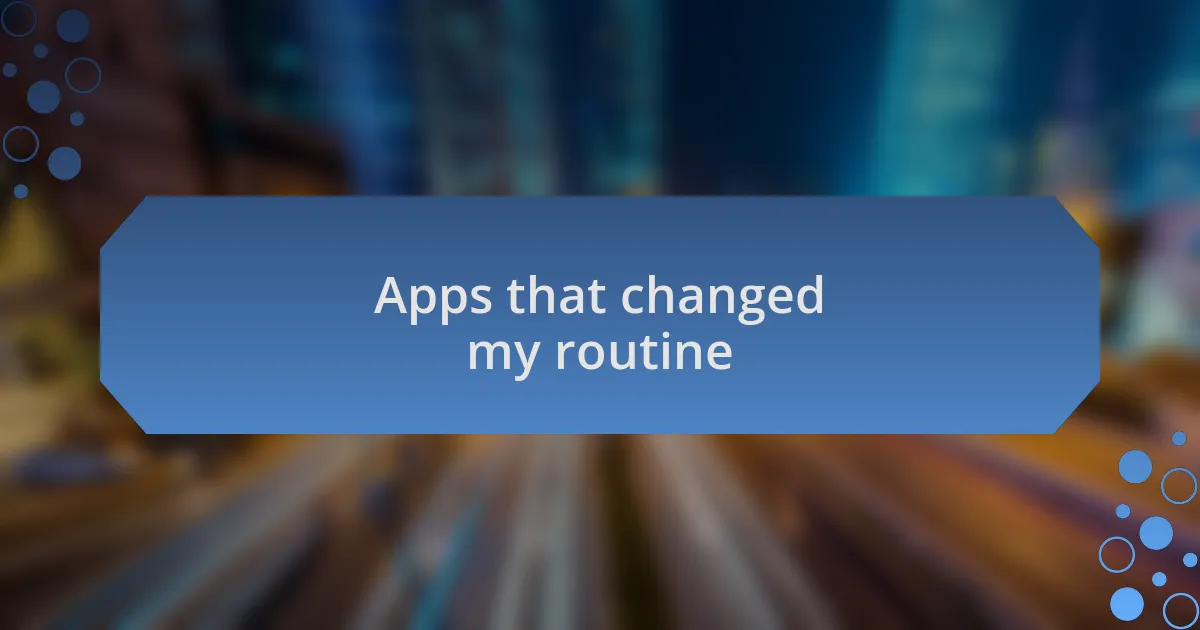
Apps that changed my routine
I’ve tried quite a few apps, but one that truly shifted my routine was a to-do list application that allowed me to categorize tasks by urgency. There was something satisfying about dragging tasks into completed sections at the end of the day. Often, I’d sit there, looking at my life on a screen, realizing how much I could achieve once I sorted my tasks rather than leaving them to linger in my mind.
Another game-changer was a focus timer app that enforced breaks as well as work sprints. Initially, I was skeptical—wouldn’t it disrupt my flow? Surprisingly, those pauses reinvigorated my concentration. I found myself racing against the clock and, oddly enough, it made the work feel more like a game than a chore.
I also discovered an app dedicated to building habits, which allowed me to track my progress over time. Seeing the streak of days I maintained a routine filled me with pride and motivation. It’s fascinating how something so simple could build momentum in my daily life. Have you ever tracked a habit you wanted to build? The sense of accomplishment can be genuinely uplifting.
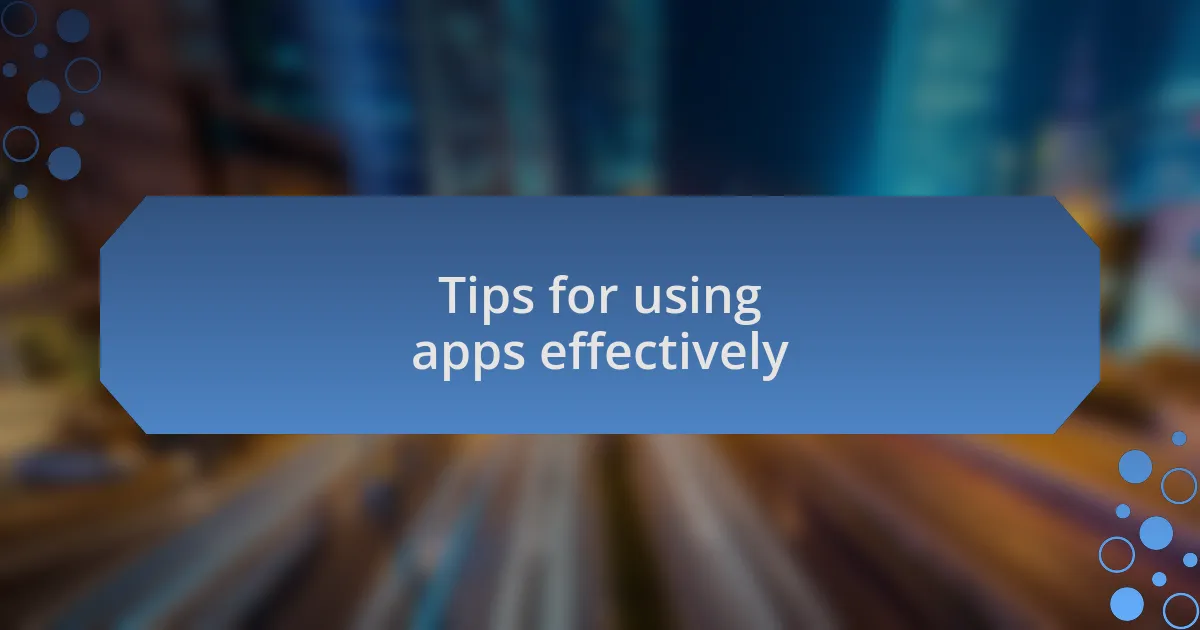
Tips for using apps effectively
When using productivity apps, I’ve found that personalization is key. For instance, customizing notifications can make all the difference; once I tailored my reminders to be more encouraging rather than stern, I started feeling more motivated to tackle my to-do list. How do you think a simple tweak like that could change your day?
I also recommend integrating apps with your daily routine. I made it a habit to open my focus timer app first thing in the morning, which set a productive tone for the day. This small change helped create a seamless transition into my work and made me more conscious of how I utilize my time.
Lastly, don’t be afraid to experiment with different tools. I’ve tried various apps, and it’s important to realize that what works for one person might not work for another. After some trial and error, I eventually found a combination that resonated with my workflow. Have you considered what might happen if you approached app selection with a playful mindset, viewing each new tool as an opportunity for improvement?